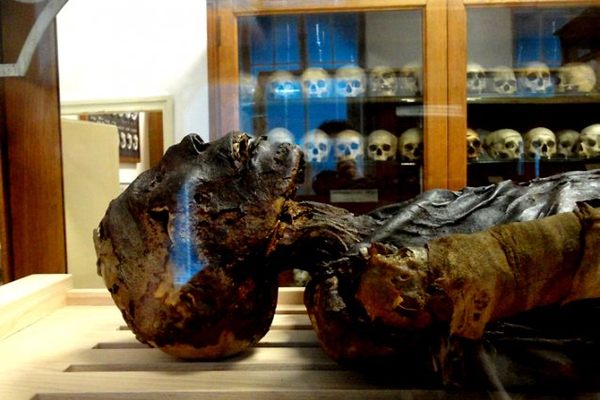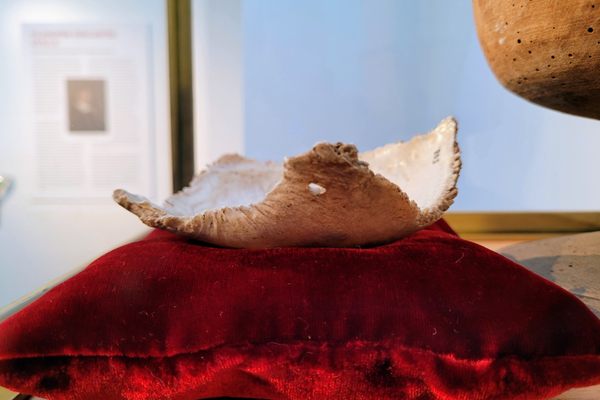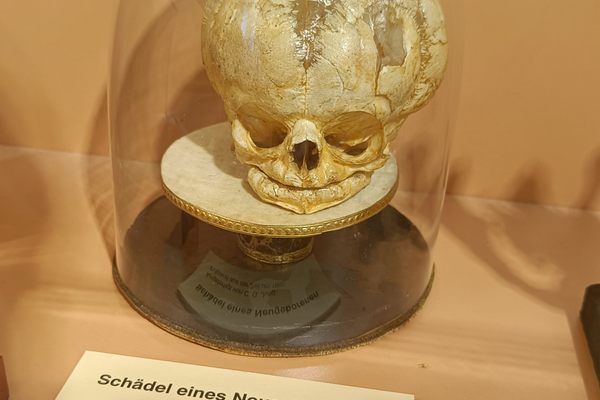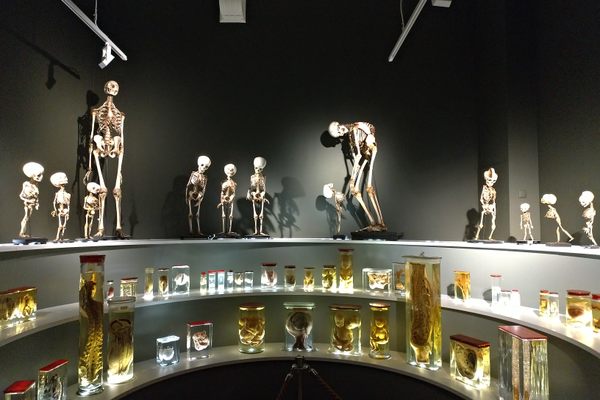About
The Hrdlička Museum of Anthropology is a collection of human and non-human primate skulls, hair samples, mummies (and heads of mummies) from Egypt, as well as unintentionally mummified human remains, all meant to instruct and inform about human diversity and evolution.
The museum was founded by two noted anthropologists. Aleš Hrdlička, who famously developed the theory that humans colonized North America by crossing from Asia via the Bering Strait, a theory he supported with evidence from skeletal remains many of which are included in the museum. (He won the Thomas Henry Huxley Award in the 1920s for this discovery) The other was Jindřich Matiegka, Hrdlička's co-explorer and chair of anthropology at the Charles University who, coincidentally, also organized the bones in the nearby Melnik Ossuary.
Not all of Hrdlička's theories were quite so well-supported, though. He was a critic of theories of hominid evolution and incorrectly argued that Central Europe was the cradle of human evolution.
The collection shows all sorts of aspects of the human condition, evolution, disease, deformities, and similarly veined roads that tell the story of the human body. Artificial and natural mummification are both represented through artifacts, one of the more fascinating bodily experiences in this 100-year-old concept of Aleš Hrdlička's to explore his anthropologic passions.
The pieces in this exhibit come, in part, from Hrdlička's world travels and excavations that took place mostly in the United States (primarily Alaska) with the majority of it collected between WWI and WWII. Along with the full Egyptian mummies, the museum houses eight mummified heads and 23 human skulls as well as several long bones.
Related Tags
Know Before You Go
Inside the Building of the Faculty of Science Viničná 7, 128 00 Praha 2Enter the doors and either ask the person at the reception desk, or go up the first stairs in the entrance hall and turn right down the first hallway. Then ring the bell for the museum door, on the left at the end of the hall. Please note you can access the building but not the collection unless you have booked in advance via web or email.
Community Contributors
Added By
Published
March 17, 2013








































